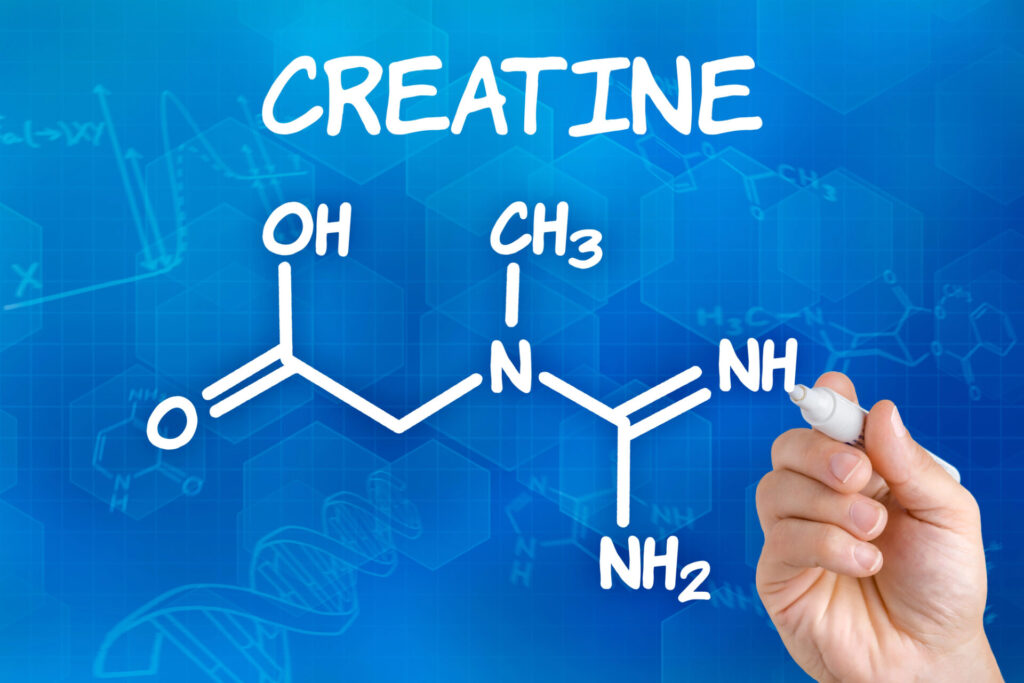Below are three peer-reviewed studies showing the benefits of Omega-3 fatty acids in addressing chronic diseases, including rheumatoid arthritis, cognitive impairment, and non-alcoholic fatty liver disease.
Study 1: DHA, EPA, and GLA for Rheumatoid Arthritis
Researchers evaluated the effects of supplemented marine polyunsaturated fatty acids (PUFA) supplying DHA and EPA, with and without GLA, on patients with rheumatoid arthritis (RA). Sixty patients with active RA participated in this prospective randomized 12-week trial.
Patients were randomly allocated to three groups of 20. Group 1 received 1500 mg of DHA and 1000 mg of EPA daily. Group 2 received a combination of Omega-3 fatty acids 600 mg of DHA, 400 mg of EPA, and and the Omega-6 fatty acid 234 mg of GLA daily. Group 3 received no supplementation.
Clinical and laboratory evaluations were conducted at the beginning and end of the study. Results showed the  Disease Activity Score 28 (DAS 28 score), and number of tender joints and visual analogue scale (VAS) score decreased notably after supplementation in groups 1 and 2. The combination of n-3 PUFAs and GLA increased GLA, which was undetectable in all groups before the treatments.
Disease Activity Score 28 (DAS 28 score), and number of tender joints and visual analogue scale (VAS) score decreased notably after supplementation in groups 1 and 2. The combination of n-3 PUFAs and GLA increased GLA, which was undetectable in all groups before the treatments.
Conclusion / In this study, supplementation with both fish oil and GLA resulted in significantly improved clinical variables, and the consumption of fish oil combined with GLA had positive effects in RA patients which were similar or even better than the fish oil supplementation alone, suggesting the combination has a great potential for patients with RA and other chronic inflammatory diseases.
Veselinovic M, et al. Clinical Benefits of omega-3 PUFA and gamma Linolenic Acid in patients with Rheumatoid Arthritis. Nutrients 2017, 9, 325; doi:10.3390/nu9040325
Study 2: Impact of Omega-3 Fatty Acid Supplementation on Memory Functions in Healthy Older Adults
In neurodegenerative diseases such as Alzheimer’s disease (AD) or mild cognitive impairment (pre-dementia phase of AD) changes in cognitive function and memory decline occur quicker than in normal aging. In this study, researchers looked at the effects of 2,200 mg of Omega-3 (n3) fatty acids (FA) taken daily for six months on memory function.
Usi ng LOCATO, a robust and sensitive tool for assessing object-location memory (OLM) in older adults to evaluate the impact of n3-FA on memory and learning formation, they conducted a double-blind placebo-controlled proof-of-concept study. 44 healthy female participants (50-74 yrs) completed before and after OLM-task (testing). As secondary outcome parameters, performance in Rey Auditory Verbal Learning Test (AVLT), dietary habits, omega-3-index, and other blood-derived parameters were assessed. They received either n3-FA or placebo for 26 weeks.
ng LOCATO, a robust and sensitive tool for assessing object-location memory (OLM) in older adults to evaluate the impact of n3-FA on memory and learning formation, they conducted a double-blind placebo-controlled proof-of-concept study. 44 healthy female participants (50-74 yrs) completed before and after OLM-task (testing). As secondary outcome parameters, performance in Rey Auditory Verbal Learning Test (AVLT), dietary habits, omega-3-index, and other blood-derived parameters were assessed. They received either n3-FA or placebo for 26 weeks.
Omega-3 index increased significantly in the n3-FA group compared to placebo. Recall of object locations was significantly better after n3-FA supplementation compared to placebo, although the AVLT was not significantly affected.
Conclusion / This study provides further evidence that n3-FA exert positive effects on memory functions in healthy older adults, and the findings suggest novel strategies to maintain cognitive function into old age.
Külzow N, et al. Impact of Omega-3 Fatty Acid Supplementation on Memory Functions in Healthy Older Adults. Journal of Alzheimer’s Disease. Feb 10 2016 doi:10.3233/JAD-150886
Study 3: Non-alcoholic Fatty Liver Disease Severity and Metabolic Complications in Obese Children: Impact of Omega-3 Fatty Acids
Although n-3 polyunsaturated fatty acids (PUFA) revealed promising therapeutic results in non-alcoholic fatty liver disease (NAFLD), which is considered as the most prevalent cause of chronic hepatic disease, inconsistencies are calling for further confirmatory trials to demonstrate therapeutic efficacy and safety. The study, registered as NCT02201160 on www.clinicaltrials.gov, was designed to compare two groups of NAFLD with a different severity, and to evaluate the efficacy of n-3 PUFA supplementation.
Twenty young male participants of French Canadian origin with NAFLD were enrolled and classified into moderate (mNAFLD) and severe (sNAFLD) fatty liver groups, according to transaminase levels, ultrasonography, NAFLD Activity Score and Fatty Liver Index (FLI). The sNAFLD patients were assigned to consume 2 g of n-3 PUFA for 6 months. sNAFLD patients displayed higher insulinemia, insulin resistance (IR), oxidative stress (OxS), systolic blood pressure and the risk lipid indicators of cardiovascular diseases.
Supplementation of n-3 PUFA for 6 months resulted in a significant increase in concentrations of eicosapentaenoic and docosahexaenoic acids in red blood cells along with an attenuation of hepatic steatosis as reflected by the reduction of the FLI, ALT and ALT/AST ratio. Moreover, the n-3 PUFA improved the lipid profile and carotid intima-media thickness, while reducing metabolic and OxS markers as well as raising adiponectin.
Conclusion / NAFLD severity was essentially related to IR. Treatment with n-3 PUFA has an evidently beneficial effect on liver steatosis and related metabolic abnormalities. Furthermore, the cross association of omega-3 index with cardiometabolic markers may serve as a predictor for cardiovascular risk disorders in NAFLD.
Spahis S, et al. Non-alcoholic fatty liver disease severity and metabolic complications in obese children: impact of omega-3 fatty acids. J Nutr Biochem. 2018 Apr 10;58:28-36. doi: 10.1016/j.jnutbio.2018.03.025.





